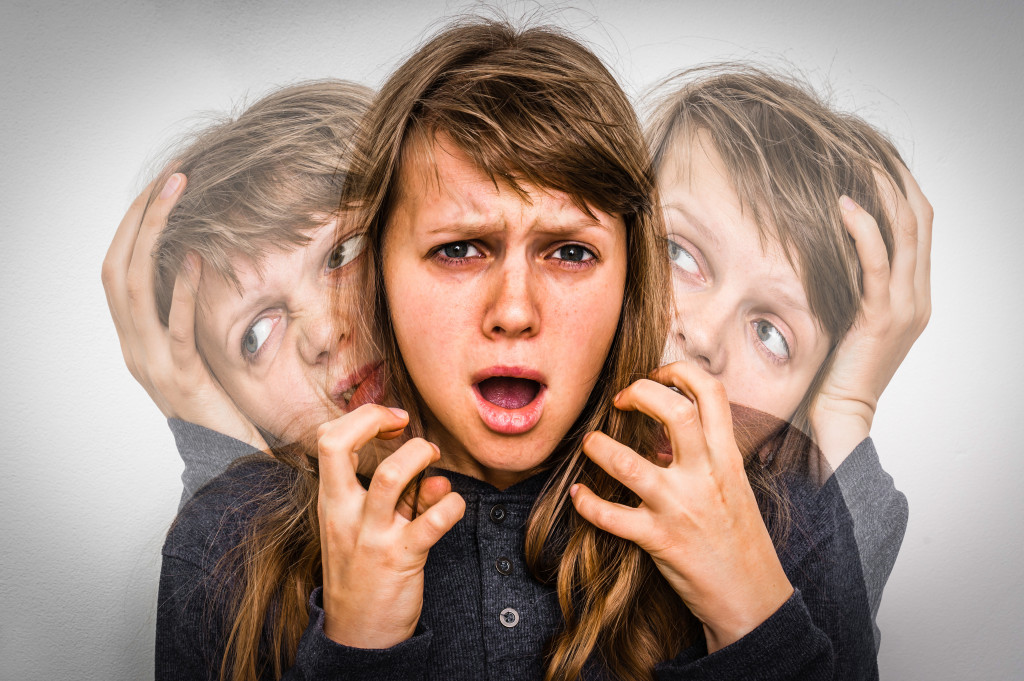• Schizophrenia, bipolar disorder, depression, and anorexia nervosa are serious mental health issues affecting millions in the United States.
• Symptoms may vary depending on the disorder but often include changes in energy level or mood swings.
• Treatment for these disorders usually involves a combination of medications and psychotherapy to help individuals manage their symptoms.
• Mental health is an important topic in society, and it’s important to stay informed about the various disorders affecting people’s lives.
• It is also important to seek medical advice if you have any concerns regarding your own mental well-being or recognize any signs of a disorder in someone close to you.
Mental health is an increasingly important topic in society, and it’s important to stay informed about the various disorders affecting people’s lives. These disorders are often misunderstood, leading to feelings of isolation and stigma. It’s important to arm yourself with the knowledge to understand better mental health issues, as well as how best to support those who struggle with them.
Mental Disorders in the U.S.
There are various mental health disorders that can affect people in the United States. Here are some of the most dangerous:
Schizophrenia
Schizophrenia is one of the most serious mental illnesses, characterized by a breakdown of thoughts and emotions that lead to hallucinations and disordered behavior. It is estimated that 1% of people worldwide suffer from schizophrenia.
Symptoms may include delusions, paranoia, social withdrawal, difficulty expressing emotion or understanding speech, memory loss, impaired motor functions, and depression. Treatment involves medication to control symptoms and psychotherapy to help individuals manage their illnesses.

Bipolar Disorder
Bipolar disorder is a mood disorder that affects approximately 2% of Americans every year. It involves alternating periods of mania (extreme happiness) and depression (extreme sadness). Symptoms may include extreme changes in energy level or mood swings; racing thoughts; impulsive or reckless behavior; difficulty sleeping; distractibility; restlessness; poor judgment; irritability; and suicidal thoughts. Treatment includes medications such as antidepressants and mood stabilizers as well as psychotherapy to help individuals manage their illnesses.
Depression
Depression is a common yet serious mental health condition that affects millions of people worldwide each year. Symptoms may include persistent feelings of sadness or hopelessness; loss of interest in activities once enjoyed; insomnia; restlessness; fatigue; difficulty concentrating on tasks or making decisions; changes in appetite or weight loss/gain without dieting; physical aches/pains without cause; thoughts of death or suicide attempts/ideation. What makes this such a serious disorder is that it can lead to self-harm and even suicide.
Treatment typically involves medications such as antidepressants and therapy sessions with a mental health professional to help individuals manage their illnesses better.

Anorexia Nervosa
One of the most common eating disorders is anorexia nervosa, which affects approximately one percent of females in the United States. It involves extremely restrictive diets and an intense fear of gaining weight.
Symptoms may include extreme thinness; feelings of worthlessness or guilt associated with food; distorted body image; withdrawal from social activities; lack of energy and interest in life; and amenorrhea (loss of menstrual cycle). This might look less dangerous than other mental health disorders, but it can be life-threatening if left untreated, because it can affect vital organs and cause serious medical problems.
Thankfully, there are treatment centers for this disorder. A reputable anorexia recovery center can help individuals recover from anorexia through a combination of therapies such as cognitive behavioral therapy, dialectical behavior therapy, nutrition education, and psychotherapy. All of these are great in treating this disorder.
Anxiety Disorders
Anxiety disorders are among the most common mental health problems affecting people today. These conditions involve excessive fear or worry often accompanied by physical symptoms such as sweating, trembling, dizziness, chest pain, etc., which can interfere with daily activities like work or school performance and relationships with others. This disorder is dangerous because these physical symptoms can be mistaken for something more serious like a heart attack.
Treatment usually involves cognitive-behavioral therapy (CBT) where individuals learn how to identify and change irrational thought patterns related to anxiety and medications like antidepressants or antianxiety drugs prescribed by a doctor depending on individual needs.
Improving Your Mental Health
Mental health issues can be both serious and life-threatening if not properly treated on time. If you have any concerns regarding your own mental well-being or recognize any signs mentioned above in someone close to you, then do not hesitate to seek medical advice immediately from qualified healthcare professionals who specialize in psychiatry & psychology so they can provide you with appropriate treatment options tailored according to individual needs & circumstances for best possible outcomes.


